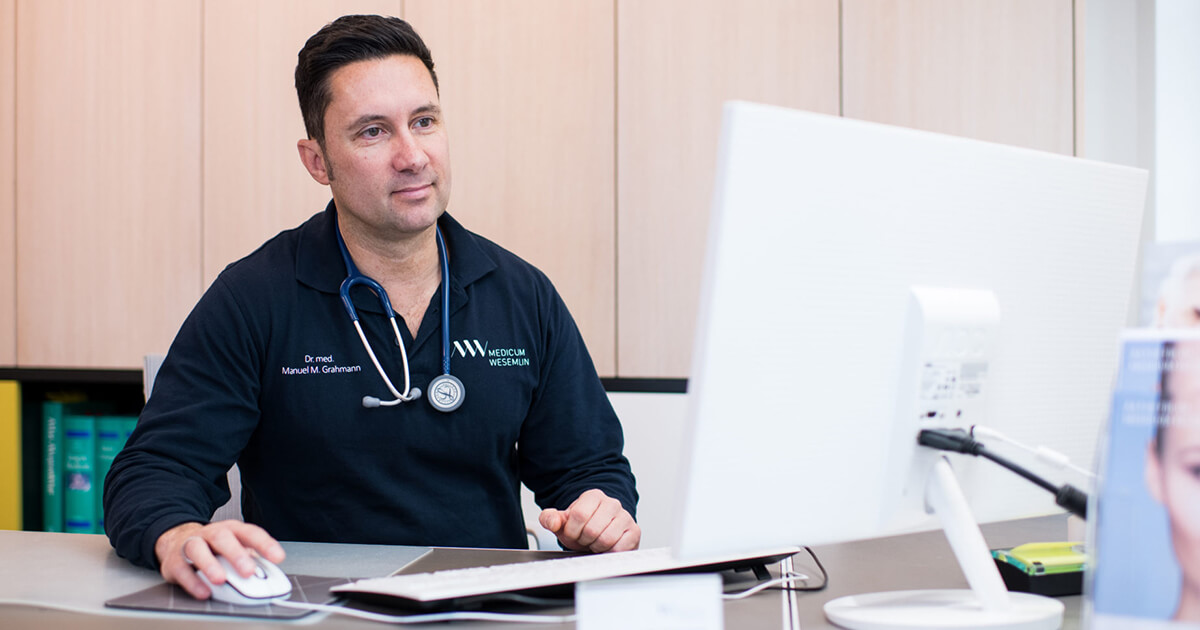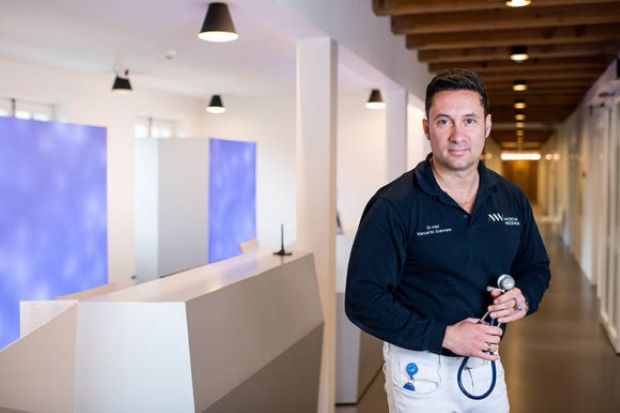The facts are therefore clear: digitisation holds great savings potential for outpatient service providers. It can be assumed that more and more GPs will digitise their processes. How quickly this happens will be determined not least by the patient: "Patient acceptance will play a major role in whether doctors in the outpatient sector work with an electronic patient dossier(opens in new tab) sooner or later and switch to digital processes in general," explains Andreas Zürcher, Head of Healthcare Professionals at Swisscom Health.
In times when people book their flights online(opens in new tab), shop via smartphone and make their hairdressing appointments online, they are less and less willing to do without such conveniences in the healthcare sector. In a digitalised healthcare system, patients not only have secure online access to their patient data, but also no longer have to wait weeks for a referral letter by post or lug their x-rays from doctor to doctor in person. Overall, processes become more efficient, leaner and shorter. Practice staff have more time for their core tasks and can take better care of their patients.
Digitalisation is also not just an issue for younger practices: "Digitalisation increases the value of a practice and therefore also the chance of finding a successor," observes Zürcher. And Dr Grahmann adds: "Of course, digitalisation also influences our business model, because the higher efficiency ultimately results in a significantly higher quality of our work. And that also means a better quality of our practising medicine."


